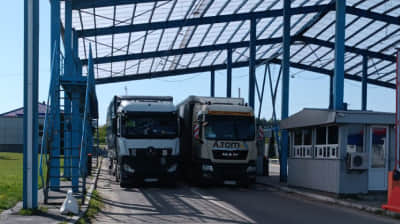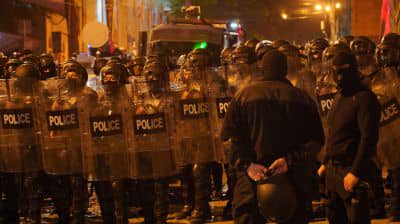Top brands quit Russia, but their goods remain easy to get – Reuters
Lorries carrying Coca-Cola roll across the border into Russia, tourists return from abroad laden with Zara's latest designs, and local online marketplaces buy up IKEA's furniture stocks. Western brands may have left the country, but their goods haven't.
Source: Reuters
Details: "Despite European, North American and Japanese companies exiting Russia over its actions in Ukraine, the impact on Russian consumers is minimal, although delivery times can be longer and some goods more expensive. The main change has been to supply routes, but the products remain available both online and in stores. Buyers just need to know where to look," Reuters emphasises.
The vast majority of goods concerned are not subject to sanctions and these cross-border flows are legal. "And Moscow is happy to let them in, whatever route they take," says the agency.
The continued availability of brands is indicative of the challenge companies face when exiting a market by controlling supply chains.
For example, Inditex, the owner of Zara, closed 502 Russian stores after Russia sent troops into Ukraine and then sold them to the UAE-based Daher Group.
According to a Reuters review of the six largest online marketplaces and conversations with a dozen buyers and sellers, they are now surviving thanks to small imports and online sellers.
At the same time, while most of the Western brands that have ceased operations in Russia have also pulled out of Belarus, Inditex has not. The company did not respond to questions about this.
Currency dynamics were partly responsible for a seven-fold increase in deliveries from Turkey on CDEK Forward, a delivery service from foreign e-commerce sites, its marketing director Dinara Ismailova told Reuters.
"As soon as brands said they were leaving, some kind of panic started, and the number of volumes and orders rose sharply," Ismailova said.
Last year, CDEK Forward, which deals with small private deliveries, doubled its turnover in monetary terms, with 80% of it coming from clothing, and its turnover tripled.
"It's comparable to if you personally went to a Zara store in New York, bought something there and sent it on to your friends in Moscow," Ismailova said.
In addition, with the disruption of supply chains, Russia has legalised so-called parallel imports, allowing retailers to import goods from abroad without the permission of the trademark owner.
E-commerce sites sell a wide range of imported goods, and sellers often advertise that they bring products from abroad.
Market leader Wildberries sells old stock of Inditex brands and has almost 17,000 products in its Zara catalogue. A source close to Inditex said that these were leftover goods that were in Russia when the company suspended its operations there, Reuters adds.
Wildberries did not respond to a request for comment.
One of the common Western products is Coca-Cola, which is often advertised as imported so that customers know it is the real deal.
"While Coca-Cola Co (K.N) stopped producing and selling drinks in Russia last year, others have been importing them, with labels on cans and bottles showing they have arrived from Europe, Kazakhstan, Uzbekistan and China. One quirk of this arrangement is that prices vary. In one Moscow supermarket, three cans of Coca-Cola were on sale for three different prices, imported from Denmark, Poland and Britain respectively," the article reads.
"Contacts were quickly established and new contracts with new partners signed, new money flows and logistical supply chains with Turkish, Polish and Kazakh companies were launched," an employee at a major retailer said on condition of anonymity.
In addition, "friendly" countries have increased their exports to Russia. Thus, trade between China and Russia last year reached a record 1.28 trillion yuan (US$186 billion), and Türkiye’s exports to Russia increased by 61.8% to US$9.34 billion.
At the same time, Kazakhstan's exports increased by 25.1% to US$8.78 billion.
Journalists fight on their own frontline. Support Ukrainska Pravda or become our patron!







